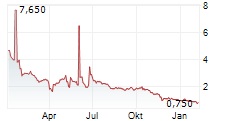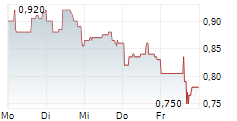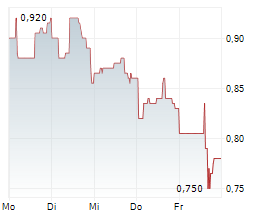- Demonstrates statistically significant reduction of pro-inflammatory cytokines, including IL-6, IL-1ß, IL-2, and KC/Gro
- Significantly reduces levels of inflammasome marker, NLRP3, a key contributor to neurodegeneration
- Reduces key pro-inflammatory markers, independent of amyloid beta or tau pathology
Vancouver, British Columbia--(Newsfile Corp. - June 24, 2025) - InMed Pharmaceuticals Inc. (NASDAQ: INM) ("InMed" or the "Company"), a pharmaceutical company focused on developing a pipeline of proprietary small molecule drug candidates for diseases with high unmet medical needs, today announced new preclinical data demonstrating that INM-901 significantly reduces inflammation in ex vivo models of neuroinflammation, further supporting its potential as a therapeutic candidate in Alzheimer's disease.
The study evaluated INM-901 in an ex vivo model of lipopolysaccharide (LPS)-induced inflammation in animal brain tissue, which is designed to induce a strong expression of pro-inflammatory cytokines IL-6, IL-1ß, IL-2, and KC/Gro and inflammasome marker NLRP3. Results demonstrated that INM-901 treatment can reduce pro-inflammatory cytokines and may have a direct impact on neuroinflammation independent of the influence of amyloid beta or tau aggregation. This study model offers insight into INM-901's potential therapeutic impact on brain inflammation that may underlie a broad range of neurodegenerative diseases, including Alzheimer's disease.
Key Findings from the Study:
- INM-901 significantly reduced levels of NLRP3 and IL-1ß, two inflammasome markers increasingly implicated in the pathogenesis of Alzheimer's disease and other neuroinflammatory diseases.
- INM-901 treatment resulted in a dose-dependent and statistically significant reduction in several key pro-inflammatory markers, including IL-6, IL-1ß, KC/Gro, and IL-2.
- INM-901 reduced key pro-inflammatory markers, independent of amyloid-beta or tau pathology, signifying potential to treat other dementia-related diseases.
"NLRP3-driven inflammation is recognized as a key contributor to neurodegenerative disease progression," said Dr. Eric Hsu, SVP of Preclinical Research & Development. "The data derived from this LPS-induced inflammation study further support our previous findings in the amyloid beta animal model following INM-901 treatment, which demonstrated a significant reduction in inflammatory markers. Notably, the results from the LPS study suggest that INM-901 exerts a direct effect on neuroinflammation, independent of the contributions from amyloid beta plaques or tau aggregation."
NLRP3 has been implicated in the pathogenesis of several inflammatory, autoimmune, metabolic and neurodegenerative conditions such as Alzheimer's disease, Parkinson's, type 2 diabetes and others. In these diseases, overactivation of NLRP3 can result in chronic inflammation in the brain, which may contribute to neurodegeneration and cognitive decline.
This most recent study represents a key advancement for the program, highlighting INM-901 as a distinctive and promising therapeutic candidate for the treatment of Alzheimer's disease and supports continued development toward a lead indication in Alzheimer's disease. The Company plans to advance INM-901 through additional preclinical studies, with IND-enabling studies to follow.
INM-901: Program Summary to date:
INM-901 is a proprietary small molecule drug candidate for Alzheimer's disease with potentially multiple mechanisms of action. Key characteristics of INM-901 include:
- demonstrates reduced neuroinflammation and improved neurite growth and neuronal function, indicating the potential to restore damage caused by Alzheimer's disease;
- is a preferential signaling agonist of the CB1/CB2 receptors and has been shown to have neuroprotective effects, helping protect the neurons in the brain from damage and cell death;
- impacts the peroxisome proliferator-activated receptors ("PPARs"), which have been shown to play an important role in diabetes and are also considered as one of the potential therapeutic targets for neurodegenerative disorders such as Alzheimer's disease;
- can be administered orally and achieve therapeutic levels in the brain comparable to those obtained through intraperitoneal injection, offering many potential advantages over routes of administration of the currently approved products; and
- demonstrates significant improvement in cognitive function, memory, locomotor activity, anxiety-based behavior and sound awareness in long-term preclinical behavioural studies.
To learn more about INM-901, please visit the website at: https://www.inmedpharma.com/pharmaceutical/inm-901-for-alzheimers-disease/.
About InMed:
InMed Pharmaceuticals is a pharmaceutical company focused on developing a pipeline of proprietary small molecule drug candidates targeting the CB1/CB2 receptors. InMed's pipeline consists of three separate programs in the treatment of Alzheimer's, ocular and dermatological indications. For more information, visit www.inmedpharma.com.
Investor Contact:
Colin Clancy
Vice President, Investor Relations
and Corporate Communications
T: +1 604 416 0999
E: ir@inmedpharma.com
Cautionary Note Regarding Forward-Looking Information:
This news release contains "forward-looking information" and "forward-looking statements" (collectively, "forward-looking information") within the meaning of applicable securities laws. Forward-looking statements are frequently, but not always, identified by words such as "expects", "anticipates", "believes", "intends", "potential", "possible", "would" and similar expressions. Such statements, based as they are on current expectations of management, inherently involve numerous risks, uncertainties and assumptions, known and unknown, many of which are beyond our control. Forward-looking information is based on management's current expectations and beliefs and is subject to a number of risks and uncertainties that could cause actual results to differ materially from those described in the forward-looking statements. Without limiting the foregoing, forward-looking information in this news release includes, but is not limited to, statements about: the efficacy of INM-901, INM-901's potential impact on inflammation, INM-901's impact on neuroinflammation independent of amyloid beta or tau pathology, the role of NLRP3 in the pathogenesis of several neurodegenerative conditions, INM-901's ability to treat Alzheimer's, marketability and uses for INM-901, the results of further studies into INM-901 and continued development of InMed's Alzheimer's program.
Additionally, there are known and unknown risk factors which could cause InMed's actual results, performance, or achievements to be materially different from any future results, performance or achievements expressed or implied by the forward-looking information contained herein. A complete discussion of the risks and uncertainties facing InMed's stand-alone business is disclosed in InMed's Annual Report on Form 10-K, in Item 1A. of the Quarterly Report for the period ended March 31, 2025, and other filings with the Securities and Exchange Commission on www.sec.gov.
All forward-looking information herein is qualified in its entirety by this cautionary statement, and InMed disclaims any obligation to revise or update any such forward-looking information or to publicly announce the result of any revisions to any of the forward-looking information contained herein to reflect future results, events or developments, except as required by law.

To view the source version of this press release, please visit https://www.newsfilecorp.com/release/256573
SOURCE: InMed Pharmaceuticals



